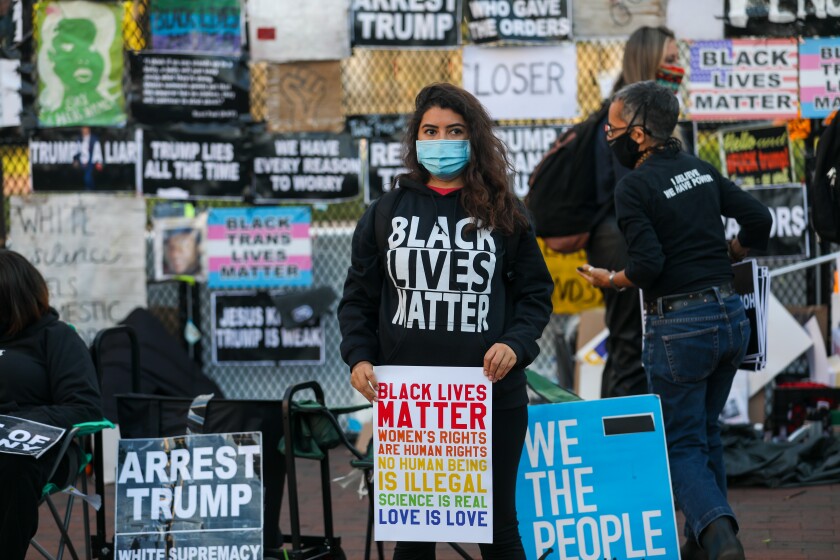Contrary to claims from commentators across the political spectrum, America is not really divided into walled-off red and blue strongholds. A comparison of congressional districts by University of Maryland researchers found that majorities in supposedly “red” districts hold views in opposition to majorities in “blue” districts on fewer than 4 percent of the political issues put before them. Large portions of citizens in districts that commentators claim are solidly partisan, in other words, have substantial agreement on most of the important matters of public policy.
Relatedly, most Americans reject ideological extremism. The long-running American National Election Studies conducted by the University of Michigan reveal that only 4 percent of Americans describe themselves as extremely liberal, while just 5 percent say they are extremely conservative. A majority say they are moderate, slightly liberal or conservative, or that they haven’t even thought about it. Not surprisingly, then, as political rancor between the major parties has escalated, the percentage of American voters declaring themselves independent from both has risen.
While the political class excels at partisanship, everyday citizens prefer solutions. The Pew Research Center reported, for example, that after the 2018 midterm elections 84 percent of Americans said they wanted President Trump to cooperate with Democratic leaders in Congress, while 64 percent said Democratic leaders should likewise cooperate with Trump.
As far as the perennially divisive factor of race goes, Americans of all colors and creeds have grown weary. According to anEconomist/YouGov poll, only a little more than half of adults who have heard of critical race theory say they have a good idea of what it is, and just 37 percent of those respondents think it’s good for America. What’s more, most Americans don’t support rote measures to ensure “equity.” The General Social Survey administered at the University of Chicago finds that 72 percent oppose racial preferences in hiring and promotion,including over half of African Americans and 65 percent of self-identified Hispanics.
Likewise do Americans reject “cancel culture.” The Economist/YouGov poll found that 90 percent agree that it’s important to protect the rights of people with unpopular views. The Pew Research Center similarly found that 84 percent of Americans say the rights and freedoms of all should be respected.
What this indicates is that Americans embrace tolerance. Less than 14 percent believe it’s not possible for people of different religions to get along when living close to one another. Fifty-eight percent reject the idea that it’s important to live where most people share their political views, while another 34 percent describe this as only somewhat important.
Perhaps most telling is that while pundits and scholars are ambivalent, at best, about our country, regular citizens love America. Seventy-nine percent say that the United States either stands above all other countries in the world, or is one of the greatest. We hold to a vision of the American Dream in which community and family are paramount, and about 8 in 10 say they are either living that dream now or are on their way to achieving it.
None of this is to say that America is perfect, or that “we the people” are in perfect agreement on every issue. Certainly the partisan divides between Trump and Biden voters are deep and persistent. But neither are we so divided that we can no longer pursue that “more perfect Union” envisioned by our Founders. The political class certainly is, which explains why our politics have become so toxic. But let’s stop believing that what they see when they look in the mirror describes the rest of us. Americans can come together to engage in the self-government to which our Constitution calls us. That begins when we remember that we have far more in common with one another than with the political titans wrecking the country in our name.
Governing's opinion columns reflect the views of their authors and not necessarily those of Governing's editors or management.
Related Content













